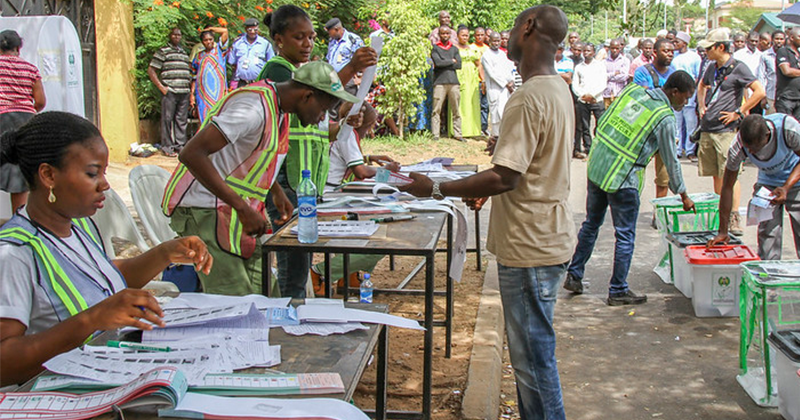A sustainable anti-corruption strategy that delivers effective poverty reduction requires a significant societal shift in social norms and behaviour to support anti-corruption.
The Anti-Corruption in Nigeria (ACORN) programme was a cutting edge and ambitious programme funded by the Foreign and Commonwealth Development Office (FCDO) designed to foster better state and non-state partnerships and robust civil society leadership - both locally and globally – in the fight against corruption. It sought to influence social norms and attitudes that help corruption thrive in Nigeria with a view of affecting social change
An important focus was helping partners to develop core adaptive capacities in understanding and shifting power dynamics and incentives that drive corruption and entrench vested interests. The programme also focused on inclusive citizens engagement, specifically for women, young people and persons with disabilities.

Read our learning brief on Evolving anti-corruption programming amid COVID-19
Contributions to the fight against corruption
Despite being brought to an early close in 2020 following an overall reduction in FCDO budgets, the programme has still made tangible contributions to the fight against corruption in Nigeria in three main areas:
- improving collaboration between state and non-state actors in fighting corruption;
- improving citizens’ understanding of corruption, including its causes, costs and consequences; and
- creating the impetus for citizens to act against corruption.
By providing information and engaging with citizen groups, ACORN has changed citizens’ perception from ‘nothing can be done to tackle corruption’ to ‘citizens’ actions can have an impact in the fight against corruption’.

Lessons and recommendations from ACORN for future programme design:
- Focus on preventive initiatives and increased citizens’ participation: The ACORN programme has laid an important foundation in improving citizens’ understanding of corruption, including creating the impetus for them to act against high-ranking official corruption. Tackling deep-rooted corruption, however, will require multiple approaches, repetition and follow-up activities to secure change.
- Emphasise a collaborative approach: building stronger relationships by involving state and non-state actors leads to allows greater knowledge sharing, coordination, and more efficient and effective anti-corruption responses.
Future programmes should avoid siloed support where Civil Society Organisations (CSOs) work against government, but CSOs must also avoid being co-opted and maintain their role to challenge power, where needed. - Use technology and social media to mobilise citizens to participate in topical anti-corruption issues: the rapid growth of young people on Twitter and Facebook, and the increasing use of social media by millions of Nigerians show its potential influence in stimulating debate and encouraging engagement in the fight against corruption. Future programmes can harness the power of social media as an effective means of putting pressure on authorities.
However, improving access to technology, social media, print and digital media at the grassroots level is important to ensure we leave no one behind, while continuing to include other practical low-tech communication approaches in engagement and outreach strategies. - Mobilise action via existing groups, community-based organisations (CBOs) and other structures: involving religious and traditional leaders who – in most cases – have the authority and level to influence social norms can be an effective method of mobilising citizens, although capacity building and group strengthening may be necessary.
- Creating a space to learn by moving beyond monitoring and evaluation for accountability purposes allows for adaptation and improvement. Future programmes should ensure that M&E systems are able to measure different aspects of transformative change which progresses at different rates.
Find out more about our work on ACORN.
To learn more, contact: Abdulkareem Lawal
Photo credit: ‘Nigerian Elections 2015’ by GPA Photo Archive via Flickr (CC BY-SA 2.0)

